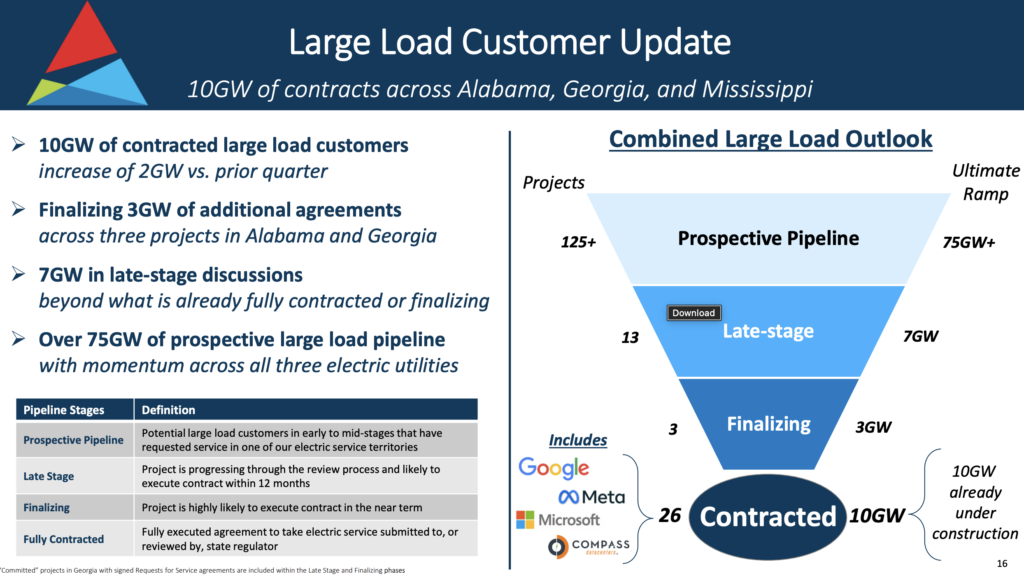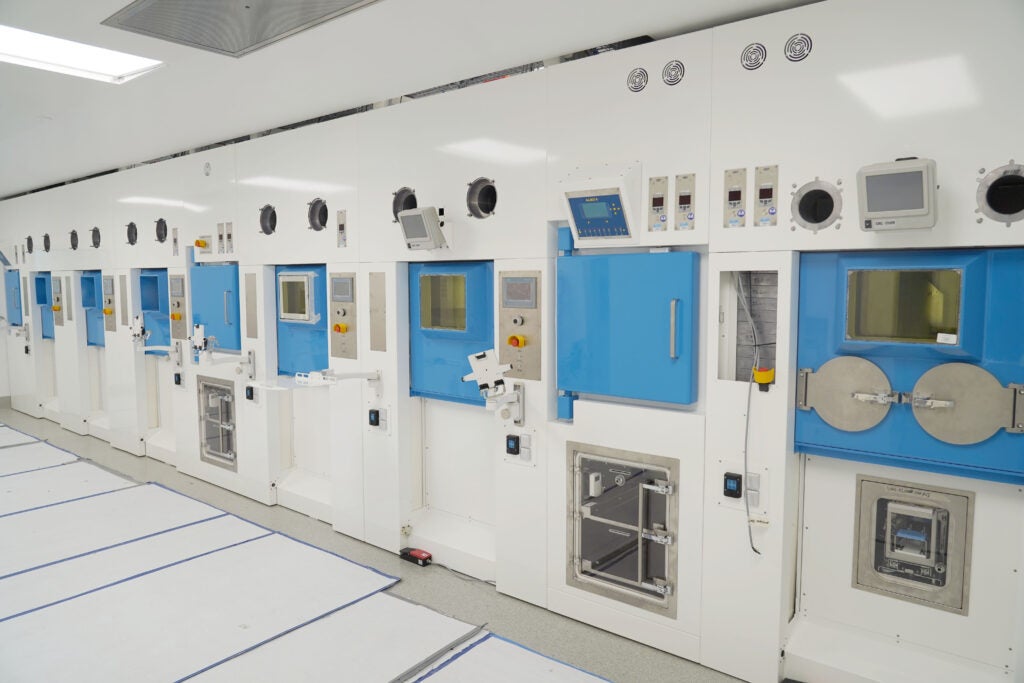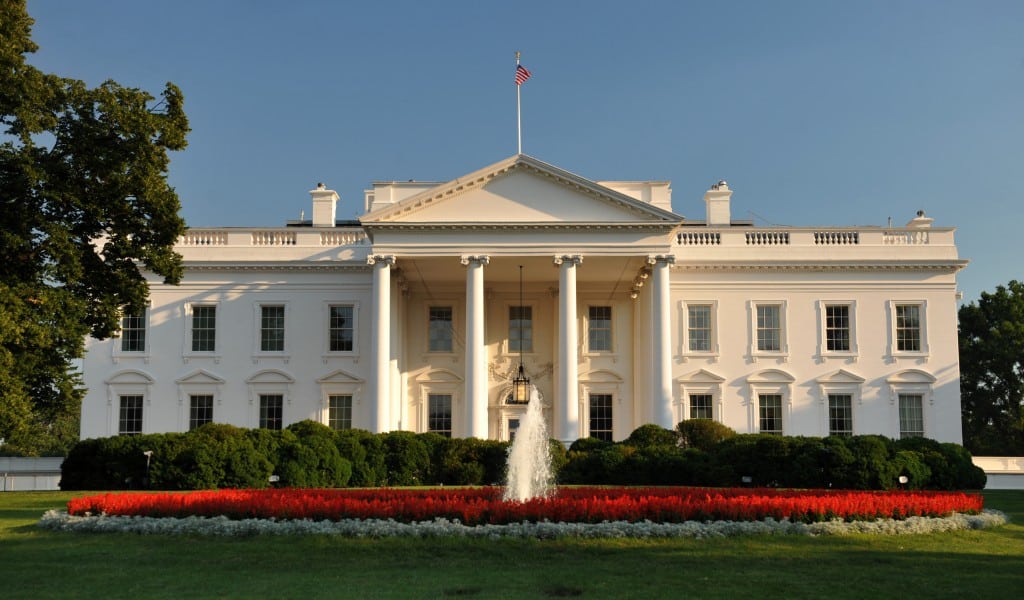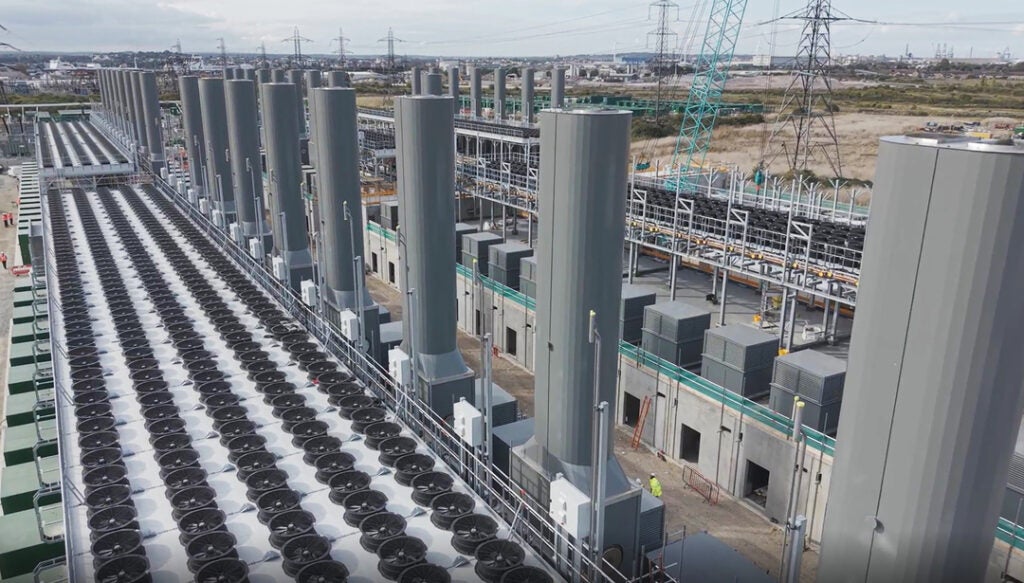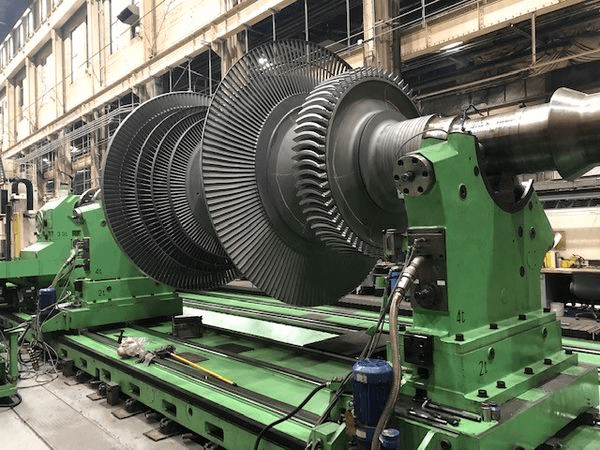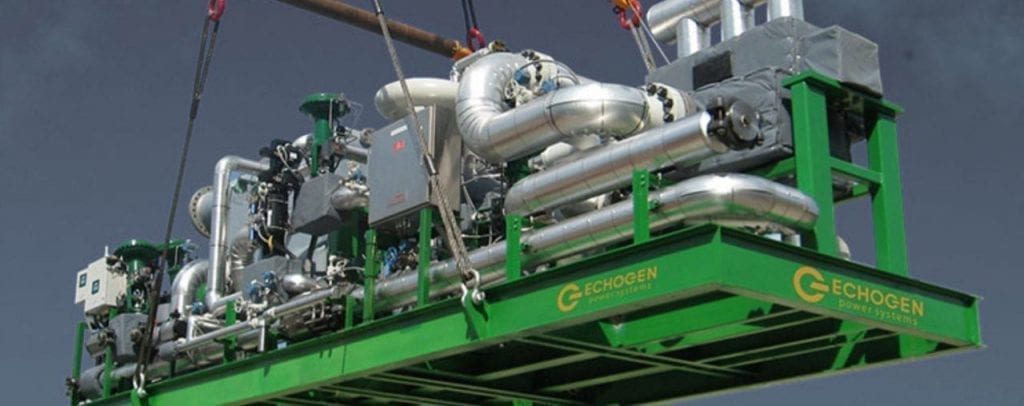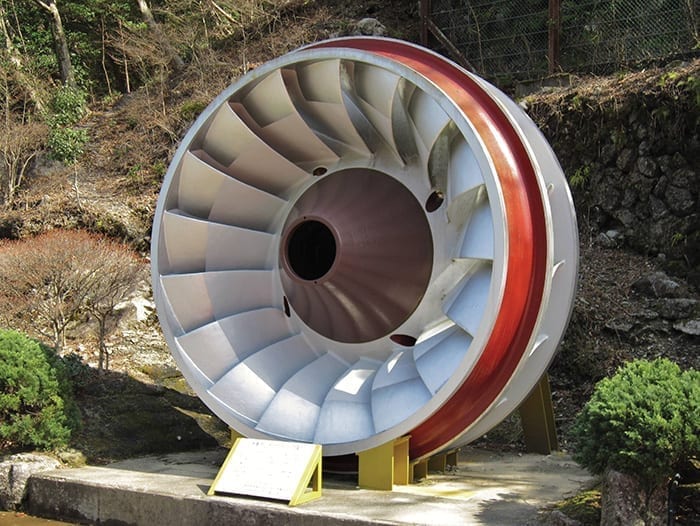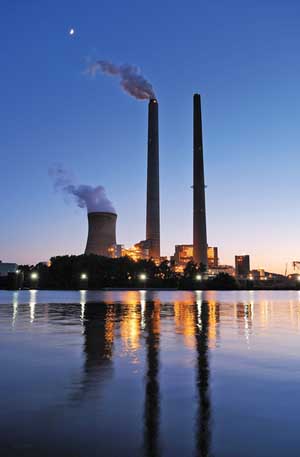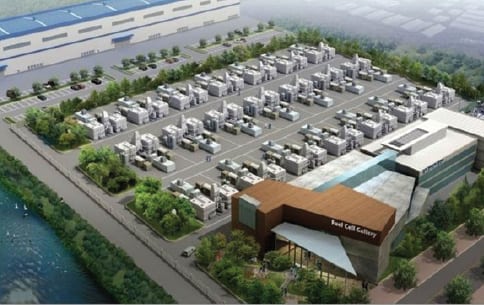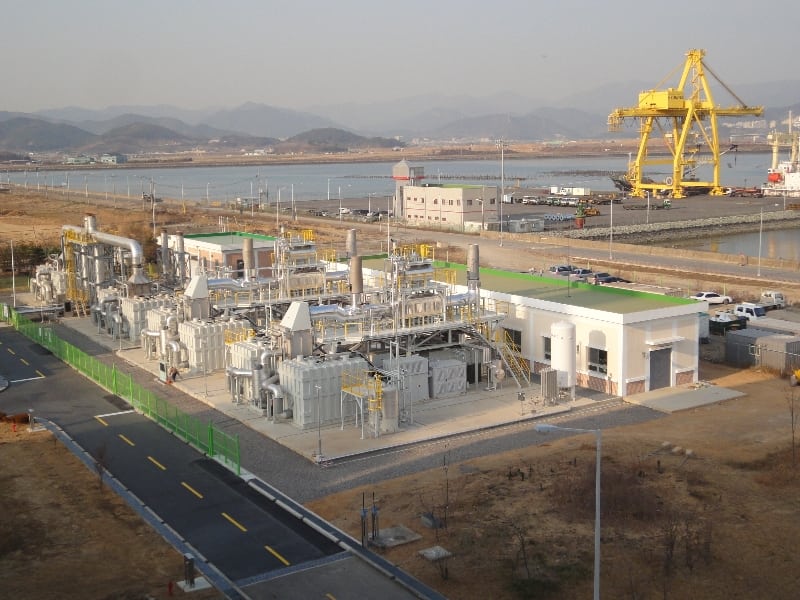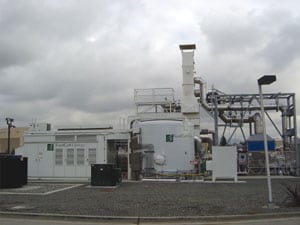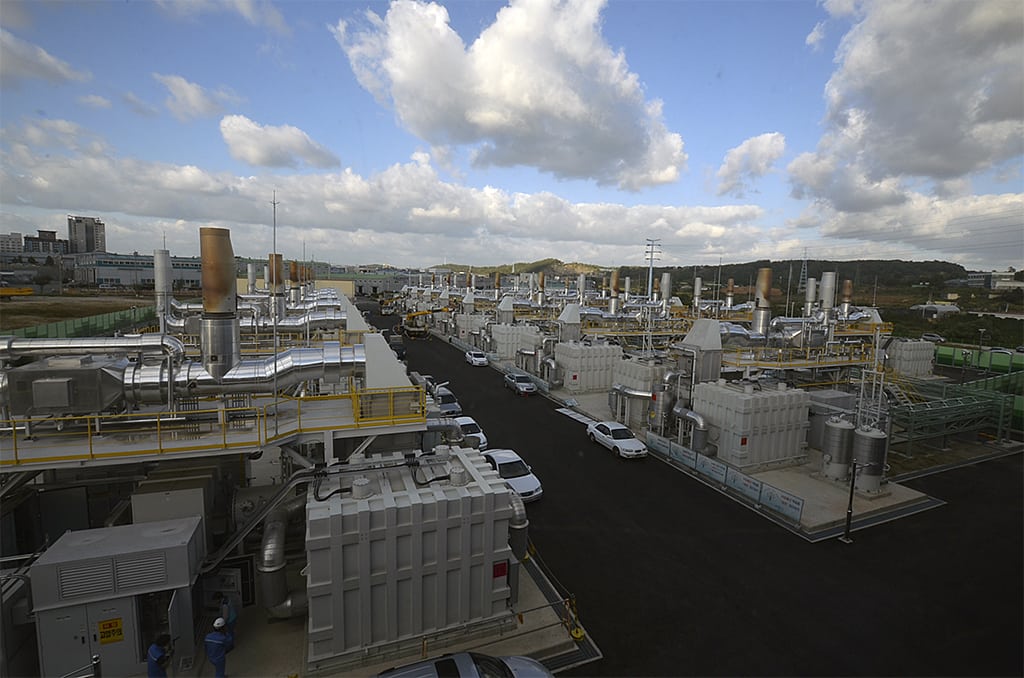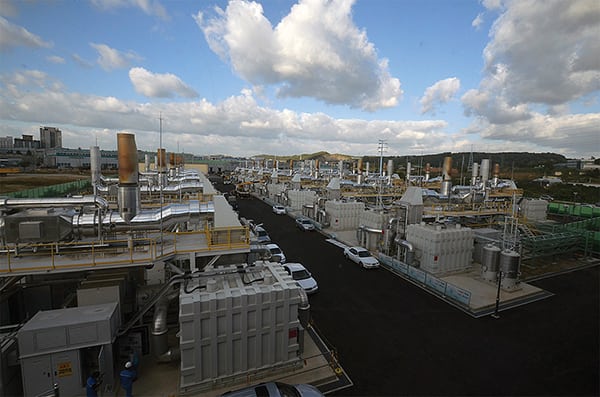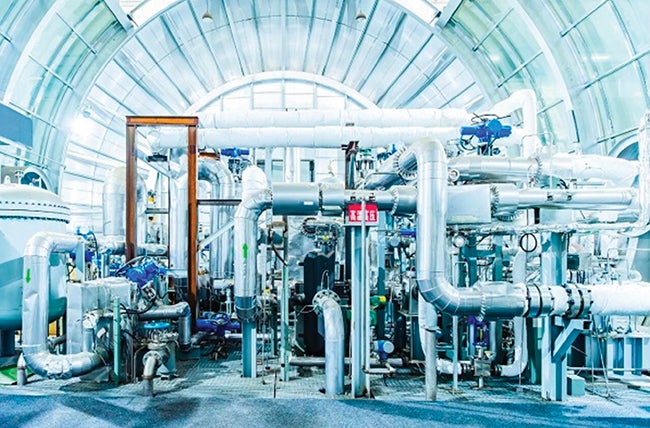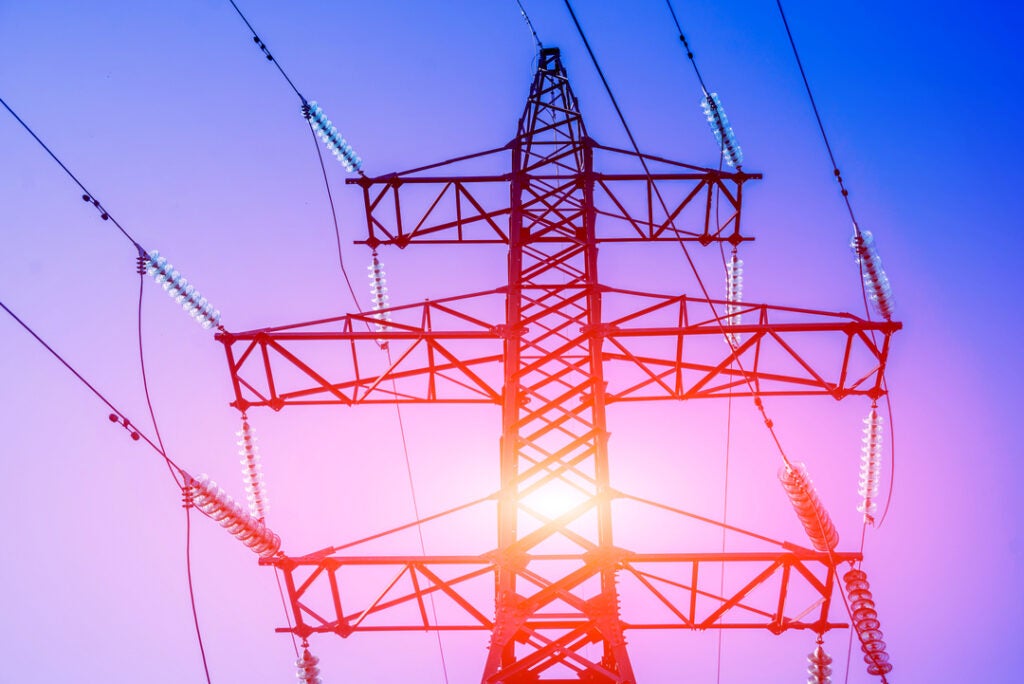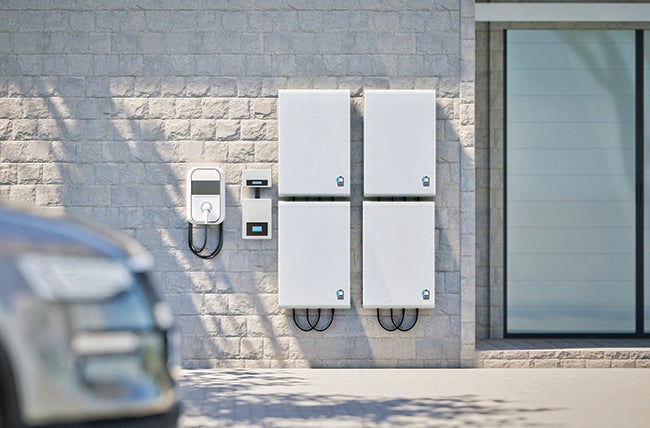FuelCell Energy Inc. on Monday announced an order from its South Korean partner, POSCO Energy, for 121.8 MW of fuel cell kits and services to be manufactured at the FuelCell Energy production facility in Torrington, Conn. The company said this represents the largest order for both its company and the fuel cell industry.
FuelCell Energy President and CEO Chip Bottone said the order would almost triple the company’s product backlog and has initiated a planned increase in 2013 production levels.
The estimated value of the multi-year contract is approximately $181 million. POSCO Energy, the largest independent power producer in South Korea, is a subsidiary of POSCO, a leading global steel producer. The first delivery under this contract will occur in May 2013. Each kit consists of 1.4 MW of fuel cell components that are interchangeable and can be used for megawatt-class fuel cell power plants or sub-megawatt plants.
“POSCO Energy recently signed a contract to build the world’s largest fuel cell park, a 58.8 megawatt project located in South Korea,” said Jung-Gon Kim, senior vice president, POSCO Energy. “This order to FuelCell Energy for 121.8 megawatts will help us meet demand in South Korea as well as other Asian countries.”
South Korea adopted an ambitious renewable portfolio standard (RPS) in 2012 to promote clean energy, reduce carbon emissions, and develop a local green industry to support economic growth. Utilities and project investors are developing new and renewable power projects under the RPS, including the new 58.8-MW fuel cell park that is in progress with construction expected to commence in 2012. Ownership of the 58.8-MW fuel cell park includes Korea Hydro & Nuclear Power Co. Ltd., Samchully Co., POSCO Energy, and financial investors. The electricity will be sold to the power grid and the heat from the fuel cells will be supplied to a district heating system.
“This multi-year committed order is really quite extraordinary from a production standpoint as it allows us to level-load our factory and provide committed volumes to our supply base, important factors for further improving our overall cost profile through operating leverage, manufacturing efficiencies and stronger supplier relationships,” commented Tony Rauseo, FuelCell Energy’s chief operating officer. “We can continue to support market development efforts by POSCO Energy through further cost reductions.”
Bottone added, “Production from this order, combined with production for scheduled restacks under existing service agreements, generates annual committed production of approximately 50 to 55 megawatts, which is the level needed for the Company to achieve quarterly positive gross margins.”
According to FuelCell Energy, an additional indicator of demand for stationary fuel cell power plants is the memorandum of understanding Korea Hydro & Nuclear Power Co., Ltd. executed with Seoul City on September 28, 2012, for the joint development of new and renewable power generation, including 120 MW of stationary fuel cell power plants. Expected fuel cell applications include the Seoul City subway, municipal water treatment facilities and resource collection facilities. Electrical and thermal efficiency is important under the RPS and the fuel cell power plants are expected to be configured for combined heat and power.
FuelCell Energy’s technology can extract hydrogen from multiple fuels, including natural gas, industrial and municipal wastewater treatment gas, propane, and coal gas.
U.S. Fuel Cell Development News
On November 2, the U.S. Department of Energy announced FY 2012 Small Business Innovation Research and Small Business Technology Transfer Phase I Release 3 award winners, including two hydrogen and fuel cell projects located in California and New Jersey:
- Nextgen Aeronautics Inc. of Torrance, Calif., will incorporate lowâ€cost nanoreinforcement into highâ€pressure allâ€composite tank designs to further increase pressure and lower costs. This project will develop fibers, resins, and/or additives that will result in composite reinforced gas cylinders for hydrogen storage that meet or exceed the performance specifications of today’s carbon fiber tanks but at a lower cost (at least 25% lower than the projected high volume cost of the carbon fiber layer for a 700 bar tank system).
- Treadstone Technologies Inc. of Princeton, N.J., will develop a novel, low-cost structured metal bipolar plate technology for low- temperature PEM fuel cells for transportation applications. The bipolar plate will be used during the manufacturing process and will help meet the DOE Energy Efficiency and Renewable Energy office’s goal of reducing the cost of an 80-kW fuel cell system to $30/kW (equivalent to the cost of a gasoline internal combustion engine) for automotive fuel cell systems by 2017 (produced at high volume).
For more on fuel cell technology developments, see these recent stories from POWER:
Microbial Fuel Cells Promise Power from Sludge
Major Developments for Solid Oxide Fuel Cells
The Rise of the Virtual Power Plant
Sources: POWER, FuelCell Energy, DOE
[This story was originally dated and posted Nov. 5.]
—Gail Reitenbach, PhD, Managing Editor (@POWERmagazine)


